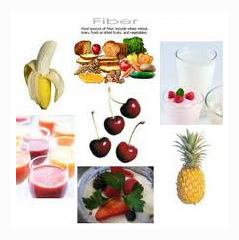Uric acid is a byproduct of the chemical
breakdown of compounds called 'purines' that exist in our body's cells and in
our food. Purines are very important to us because they provide things like our
energy that we all need and our protein. During this process uric acid is
produced in the bloodstream.
And uric acid is good for us because it acts
as an antioxidant and helps look after the internal linings of our blood
vessels. It's our kidneys' job to process the uric acid produced and excrete
waste out of our bodies via our urine, with a little via our stools.
 If the diet is high in foods containing purine, or the
kidneys are unable to eliminate excessive uric acid, high uric acid levels,
known as hyperuricemia or gout, occur.
If the diet is high in foods containing purine, or the
kidneys are unable to eliminate excessive uric acid, high uric acid levels,
known as hyperuricemia or gout, occur.
Although
the kidneys usually maintain uric acid at healthy levels, there are times when
they are unable to do this, with the result that excess uric acid is retained
in, and circulates in, the blood.
Two
of the main causes for high uric acid levels in blood are:
(1)
The kidneys aren't working to their full potential so that they are unable to
process and expel sufficient uric acid quickly enough, or...
(2)
There is too much uric acid being produced by the metabolizing purines for
healthy kidneys to process.
Whatever
is the case, the result is high uric acid in the blood.
Hydration (water)
Keep your body hydrated. Although the body
easily adapts to low water intake, optimum hydration is necessary to eliminate
uric acid from your system. Water dilutes uric acid levels in the blood, and
stimulates the kidneys to pass on waste products to the bladder.
Recommendations vary, but a good rule of thumb is to divide your body weight by
two, to determine the number of ounces appropriate for daily intake.
Adjust Your
Diet
To gain control of uric acid levels, avoid
eating foods high in purine, the chemical responsible for forming uric acid in
the system. Red meat, seafood, organ meats and some beans are all high in
purines. Refined carbohydrates and vegetables such as asparagus, peas,
mushrooms and cauliflower, should also be avoided. A diet low in purine content
is the best choice for gout sufferers or those prone to gout in order to keep
serum uric acid levels at a minimum. A diet centered on fat-free or low-fat
dairy products such as cottage cheese, yogurt, eggs and soy products should be
followed to neutralize uric acid.
Avoid
Fructose
Limit your soda consumption. In an article on
the Arthritis Today website, researchers found men who drank more than six
servings of high fructose soft drinks each week, increased the occurrence of
gout. Although diet soda is not implicated, fruit juices and other sugary
drinks are.
Reduce
Inflammation
To reduce uric acid concentration, the
University of Maryland Medical Center advises adding cherries, blueberries and
strawberries to your diet. Bromelain, found in pineapple, is a digestive enzyme
with anti-inflammatory properties that inhibits the proteins responsible for
inflammation. Celery, a natural diuretic, helps alkalize your blood and
decrease inflammation. Try a thimble full of seeds each day or take it in
supplement form.
Limit
Alcohol Intake
Because alcohol dehydrates the body, it is
advisable to limit consumption, particularly when consumed with foods high in
purine. Although consumption of wine doesn't seem to affect uric acid levels,
the high yeast content of beer makes it particularly suspect. Beer drinkers are
advised to limit intake or eliminate it from the diet altogether.
Body
Weight
When combined with a diet high in purines,
extra body weight is related to high uric acid levels, but rapid weight loss is
also a factor. If you are overweight, it is best to avoid crash dieting.
Develop a gradual weight-loss program to prevent an increase in uric acid
levels.







.jpg)

.jpg)








